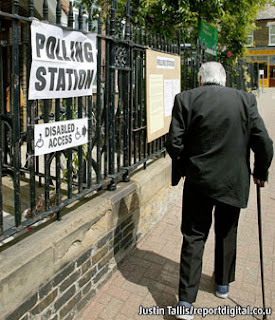As
George Osborne approaches his next budget everyone has a view on what the
Chancellor should do revive our economy.
There are only two areas of broad consensus; first that there needs to be
a change of direction and second that there needs to be a change of
Chancellor. I have been wondering for
some time whether George Osborne can be hailed as the worst Tory Chancellor
since Winston Churchill and we will know for sure next week – he has one final
chance of redemption.
On
being elected in 2010 the Coalition needed to do four things:
1. Cut government spending to
resolve the structural deficit, created by the collapse of the Banking sector revenues
and the associated property bubble, estimated at about £130 billion annually
2. Re-balance the economy away from financial
services towards manufacturing and exports
3. Reduce the private debt that was built up due to
lax regulation of the Banks over many years
4. Encourage the private sector consumption to fill
the output gap created by a shrinking
state
So
how are they doing against these four targets?
Spending - They have hardly dented the over bloated State. Having, wrongly, decided to ring fence Health
and Welfare from the cuts they have then been overly cautious cutting back
other departments. Rather than making structural changes that
lower long term costs, Osborne has focused cuts to capital expenditure. This is a lazy approach to reducing debt as
capital spending, although easy to spot, is a tiny proportion of all Government
expenditure and reducing it may well enforce the need for greater investment in
the future. The small cuts that have
been made have been matched by rising interest on the debt and spiralling welfare
cost.
Re-balance - With the weakness in the Eurozone (over 50% of our export
trade) there have been no incentives to help domestic consumption or exporters
open new markets. Why British businesses are not productive
enough to win more market share at home and abroad is a vexed question. We should not have expected the chancellor to
find a complete answer in three years but he should have made a credible start.
The lack of a cohesive trade and industrial policy are very evident. Flip flopping polices on: North Sea exploration,
Scale fracking, national infrastructure projects and energy replacement and
transport have created a sense of listless incompetence. The net result is that
the trade gap is as wide as ever and the structural deficit is becoming a
fixture.
Private debt - The Banks are still in disarray with corporate
lending still at historically low levels.
The failure to separate out the toxic assets into state run “bad banks”
has encumbered the much needed restructuring work in Lloyds, RBS and Barclays. The Asset purchase scheme has been exclusively
focused on Gilts and the opportunity has been missed to purchase other assets (some
debt forgiveness) that would have given our banks a chance to clear the decks
and get lending.
Private sector consumption – The main target of his tax increases have
been the working middle class. Asking
this group to fund his inflation linked welfare increase and deficit reduction programme
has killed a recovery in consumer spending.
The over-use of QE has also reduced disposable income for savers and
pensioners, further reducing private expenditure. By reducing disposable incomes for these two
critical groups he has removed all hope of growing our way out of the crisis.
So having
wasted three years what should he do now?
The
liberal press, the Opposition and the BBC have all argued for the Keynesian
solution – increase our indebtedness to fund Government spending on capital projects. It should not be a surprise that I favour a
slightly different approach
The
first this to square aware is that recession in the public sector is no bad
thing, it might be possible to off-set this with growth in the Private sector
but having a positive balance on this is not the primary concern. Whilst we should
be completely focused on growing private output we should not expect this to
flow through, in the short term, to any growth in GDP.
The
most important of the four objectives must be deal with the structural deficit
and to do this we need to focus away from tax increases although I would
reinstate the 50% top rate in the short term.
We need to make reductions in all areas of government spending and these
reductions should be structural (not just capital expenditure) I would target real
cuts in Health, Welfare and Defence. I
would also bring forward the privatisation of Lloyds and RBS by setting up a
nationalised ‘bad bank’ for the distressed assets of these banks.
To
galvanise some private sector output I would reduce VAT to 15% (funded by the
privatisations) for a limited period and I would stop QE and let interest rates
rise a little to give savers and pensioners a little more money in their
pockets.
Finally,
I would develop an industrial strategy that would be intent of solving infrastructure
issues at home in energy, transport and housing that could then drive exports
based on the acquired knowledge and skills.
We should be incubating industries that can feed off the national investments
we need to make in Nuclear Energy, High Speed Rail and affordable housing. Too often we have made investment decisions
that suit our competitors abroad rather than feathering our own nest. It time to start playing to our rules!




















